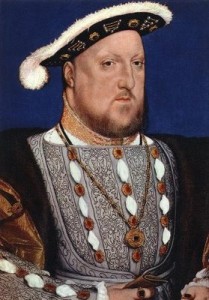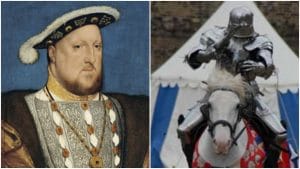
 On this day in history, 24th January 1536, the forty-four-year-old King Henry VIII suffered an accident while jousting at Greenwich Palace. It was an accident that is hotly debated today, nearly 500 years after it happened, with some historians seeing it as a real turning point in Henry VIII’s reign and a cause of his later tyranny.
On this day in history, 24th January 1536, the forty-four-year-old King Henry VIII suffered an accident while jousting at Greenwich Palace. It was an accident that is hotly debated today, nearly 500 years after it happened, with some historians seeing it as a real turning point in Henry VIII’s reign and a cause of his later tyranny.
But what happened on that day in 1536?
Well, there are three main sources for Henry VIII’s 1536 jousting accident: one written by Pedro Ortiz to the Empress, one written by chronicler Charles Wriothesley, and another written by Eustace Chapuys, the imperial ambassador. The problem is that two of them downplay the accident, saying that the king was not seriously hurt, but the other suggests that the king was unconscious for two hours.
You can read the accounts in my article from last year – click here.